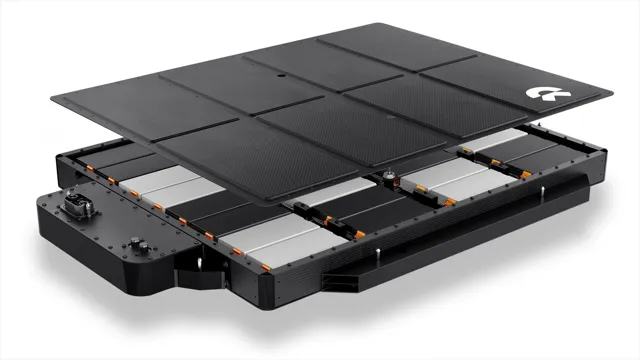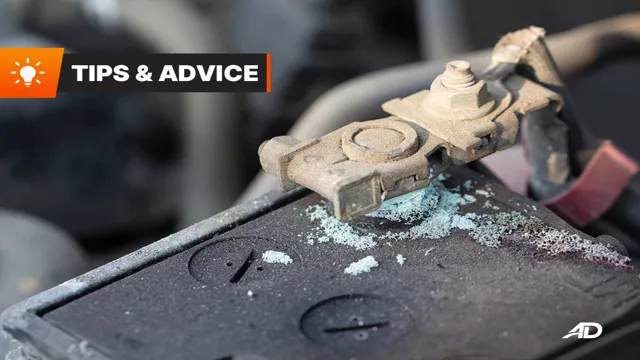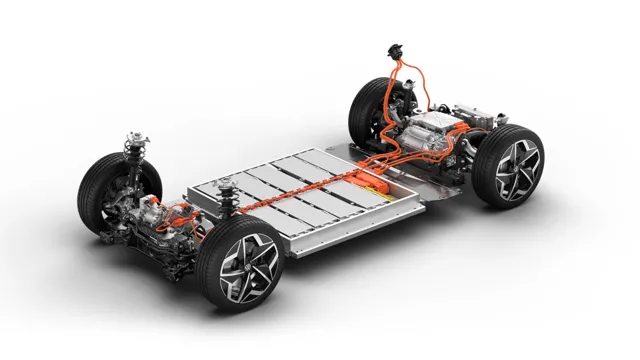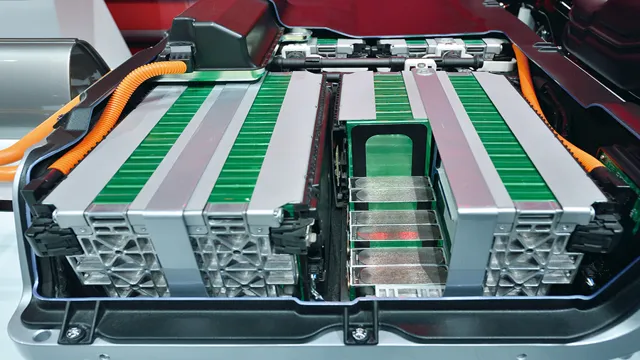Rev Up Your Ride: A Comprehensive Look at Upgrading Electric Car Batteries
Have you ever wondered whether it’s possible to upgrade the battery of your electric car? As electric vehicles continue to gain traction, it’s becoming more important for car owners to ensure their battery is performing optimally. So, can you upgrade an electric car battery? The short answer is yes, it is possible, but there are a few things you need to know first. In this blog, we’ll explore the different types of electric car batteries, the benefits of upgrading, and the potential challenges you might face.
By the end, you’ll have a better idea of whether upgrading your electric vehicle’s battery is right for you.
Battery Basics
As the popularity of electric cars continues to grow, many car owners wonder if upgrading their electric car batteries is possible. The answer is both yes and no. While there are currently no universal battery upgrades available on the market, some car manufacturers may offer an upgrade option for certain models.
However, upgrading the battery can be costly and may not always be the best solution for extending the range of an electric car. Additionally, the cost of upgrading can vary widely depending on the make and model of the car, as well as the age of the battery being replaced. So, while it may be possible to upgrade your electric car battery, it’s important to carefully weigh the costs and benefits before making a decision.
Types of Electric Car Batteries
Electric car batteries come in different shapes and sizes, but they all have one thing in common: they are all rechargeable. To understand the different types of electric car batteries, it is essential to know the basic battery components. An electric car battery is made up of three main components: the anode, the cathode, and the electrolyte.
The anode is the negative electrode, while the cathode is the positive electrode, separated by a thin polymer membrane soaked in an electrolyte solution. When an electric current is applied, the battery converts chemical energy into electrical energy, which powers the car. The most common type of electric car battery is the Lithium-ion (Li-ion) battery.
Li-ion batteries are used in most electric cars because they have a high energy density, meaning they can store a lot of energy in a small space. Li-ion batteries also have a longer lifespan than other types of batteries, which makes them more cost-effective in the long run. Another type of electric car battery is the Nickel-Metal Hydride (NiMH) battery.
NiMH batteries are commonly used in hybrid electric cars because they have a lower energy density than Li-ion batteries but are less expensive. They also have a longer lifespan than lead-acid batteries, which makes them a popular choice for hybrid electric cars. Lead-Acid batteries were the first type of rechargeable electric car batteries and are still used in some older electric car models.
Lead-Acid batteries have a low energy density and a short lifespan compared to other types of batteries. They are also heavy, which makes them less efficient than other types of batteries. In conclusion, electric car batteries come in different types, but Lithium-ion batteries are the most common due to their high energy density, longer lifespan, and cost-effectiveness.
Although NiMH and lead-acid batteries may still be used in some electric car models, the trend is towards the more efficient and reliable Lithium-ion batteries in newer models.

How Long Electric Car Batteries Last
When it comes to electric cars, the battery is a crucial component that directly impacts the vehicle’s performance and longevity. Electric car batteries are made up of hundreds, if not thousands, of individual cells that work together to provide power. These cells are typically lithium-ion, which is a lightweight and powerful technology that can store a lot of energy in a small space.
However, over time, these cells will degrade and lose capacity, meaning the car’s range will decrease. The lifespan of an electric car battery can vary depending on a variety of factors, including the type and size of the battery, the climate in which it’s used, and how often it’s charged and discharged. Generally, most manufacturers offer warranties of at least eight years or 100,000 miles on their batteries, but with proper care and maintenance, an electric car battery can last much longer than that.
Factors to Consider for Battery Upgrades
If you’re wondering whether you can upgrade the batteries in your electric car, the answer is generally “yes,” but there are factors to consider. Upgrading your battery can give you longer driving range and increased power, but it’s important to know that it can be expensive and may not be necessary. First, check whether your manufacturer offers an official battery upgrade.
If not, you may need to look at aftermarket options, which can be risky as they may not be reliable or compatible with your car’s system. Additionally, consider the age and condition of your car – if it’s nearing the end of its lifespan, investing in a battery upgrade may not be worth it. Ultimately, it’s important to weigh the cost, benefits, and potential risks before making a decision.
Cost of Upgrading Electric Car Batteries
Upgrading the battery of an electric car is a crucial decision that requires careful consideration of various factors. There are several reasons why you may want to upgrade your battery, such as better performance, longer range, or to replace an old battery. However, upgrading your battery is not a cheap or straightforward process, and you may end up spending a considerable amount of money.
Factors to consider include the cost of the battery, installation fees, and the complexity of the replacement process. Additionally, you need to consider the age and condition of your current battery and whether the upgrade is feasible both technically and financially. However, it is essential to note that upgrading your battery could save you money in the long run by improving the efficiency of your car and reducing your fuel costs.
Therefore, before deciding to upgrade your electric car battery, be sure to weigh your options carefully and choose a battery that meets your performance needs while staying within your budget.
Warranty and Insurance Implications
When considering a battery upgrade for your device, it’s important to think about the potential warranty and insurance implications. Some manufacturers consider any modification to the original hardware as a violation of the warranty, which could result in a denied claim if something goes wrong. Additionally, some insurance policies may not cover damage caused by a third-party battery or replacement.
Before making any upgrades, it’s crucial to do your research and consult with the manufacturer or insurance provider to ensure that you’re not risking voiding your warranty or insurance coverage. It’s also essential to choose a high-quality battery from a reputable supplier to minimize the risk of damage to your device. By taking the time to make an informed decision and protecting your warranty and insurance coverage, you can enjoy the benefits of an upgraded battery without any added stress.
Compatibility with Car Model
When considering a battery upgrade for your car, it’s important to take into account the compatibility with your specific car model. Not all batteries are a one-size-fits-all solution, and choosing the wrong one can lead to potential damage or malfunction. Factors to consider include the size and shape of the battery, the voltage and amperage requirements of your car, and the placement of the battery within the engine compartment.
Additionally, it’s crucial to research the brand and type of battery to ensure that it is reputable and has a history of success with your make and model of car. Taking the time to carefully evaluate these factors can lead to a successful battery upgrade and improved performance for your vehicle.
Options for Upgrading Electric Car Batteries
If you’re wondering whether you can upgrade electric car batteries, the answer is generally yes, but it can be a complex process. Upgrading a battery involves replacing the old one with a newer, higher capacity battery. However, not all electric cars are upgradable, and the process may be expensive or not worth the effort.
It’s important to consider the age of your car, the cost of the upgrade, the availability of compatible batteries, and the warranty implications before making a decision. Some electric car manufacturers offer battery upgrade options, but they can be costly. Alternatively, aftermarket companies may offer battery upgrade kits that can be installed by a qualified technician.
In any case, upgrading your electric car battery can improve the range and performance of your vehicle, and may be worth considering if you’re looking to extend the life of your car or experience better driving performance.
Replacing Entire Battery Pack
Upgrading electric car batteries can greatly improve the driving range and performance of your vehicle. One option for upgrading is to replace the entire battery pack, which may be necessary if your current battery is old, damaged, or has a lower capacity than newer models. This option can be costly, but it can also provide significant benefits in terms of longer driving range and better overall performance.
When considering replacing your battery pack, it’s important to consider the cost of the replacement as well as the potential savings in fuel costs and maintenance fees in the long run. Additionally, you should research the available options for battery packs to ensure that you get a model that’s compatible with your vehicle and has the capacity and features you need. Overall, replacing your entire electric car battery pack can be a worthwhile investment in the performance and longevity of your vehicle.
Adding Supplementary Battery Modules
Upgrading electric car batteries is a smart choice for many car owners who want to take advantage of the latest technology and extend their vehicle’s range. One option for doing this is adding supplementary battery modules to the car’s existing battery pack. These modules are typically small, portable batteries that can be connected to the car’s charging system and used to supplement the main battery pack.
This can be especially useful for people who frequently drive long distances or need to recharge their car quickly. One advantage of this method is that it can be relatively inexpensive compared to other battery upgrade options. However, it’s important to note that not all electric cars can accommodate supplementary battery modules.
It’s important to research your specific make and model before investing in this upgrade. Overall, supplementary battery modules can be a great option for people looking to extend their electric car’s range and make longer trips more feasible.
Conclusion: Is it Worth It?
In conclusion, just like how we upgrade our phone batteries, it is possible to upgrade electric car batteries. With advancements in technology, larger and more efficient batteries are becoming commonplace in the market. However, just like our phones, upgrading electric car batteries can come at a cost.
But, if the benefits of a longer range and improved performance are important to you, it might just be worth the upgrade.”
FAQs
How long does it take to upgrade an electric car battery?
The time it takes to upgrade an electric car battery can vary depending on the make and model of the vehicle, as well as the type of battery being installed. However, most upgrades can be completed in one to two days.
How much does it cost to upgrade an electric car battery?
The cost of upgrading an electric car battery can also vary depending on the vehicle and battery type. On average, it can cost anywhere from $5,000 to $20,000 to upgrade an electric car battery.
Can I upgrade my electric car battery at home?
While it may be possible to upgrade an electric car battery at home, it is not recommended as it can be dangerous and requires specialized equipment. It is best to have a professional technician perform the upgrade.
Will upgrading my electric car battery increase its range?
Upgrading an electric car battery can potentially increase its range, depending on the battery type and capacity. However, it is important to note that other factors such as weather, driving habits, and terrain can also impact an electric car’s range.






